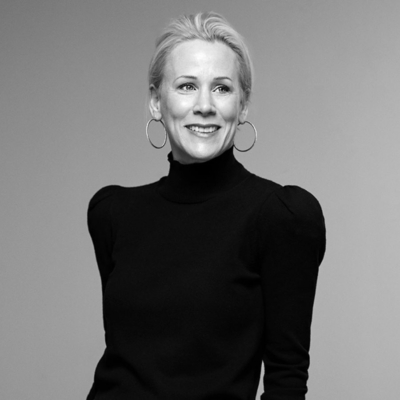JUSTINE CARBERY looks at the impact father-daughter relationships have throughout a woman’s adult life …
Do you find it difficult to commit to relationships? Do you struggle with authority figures in the workplace or elsewhere? Do you react badly to criticism?
Research shows that our ability to sustain satisfying or committed relationships, find gratification in our work life, be effective parents, speak up and assert ourselves, is largely dependent on the relationship we had and have with our fathers.
The father daughter relationship is a complex one, and all the more so given that it has perhaps been explored less than other familial relationships.
The recognition that fathers play such an important role is a relatively recent development. The focus for many years was mainly on mothers and how they affect their children’s physical, emotional and spiritual wellbeing. The parental role of a father was omitted from this equation for a long time, because his role was perceived as that of the provider. But recent research has shown that a father’s influence in his daughter’s life shapes her self-esteem, self-image, confidence and opinions of men. A girl’s relationship with her dad can determine her ability to trust, her need for approval and her self-belief. It can even affect her love life.
One thing clear from all the research is that dads matter. Linda Neilson, a professor of psychology at Wake Forest University and an expert in father-daughter relationships, explains that an emotionally absent father can have a damaging effect on his daughter’s love life.
“The daughter who has a fulfilling relationship with her father is usually more trusting, more secure and more satisfied in her romantic relationships than the daughter with a troubled or distant relationship with her dad,” she said, adding that this is the case regardless of whether her parents are married or divorced.
“Women who grow up with meaningful, comfortable, conversational relationships with their dads make better choices in who they date, sleep with, and marry.” She adds, sadly, the converse is also true. When women don’t grow up affirmed and acknowledged by their fathers, they can suffer from low self-esteem and make bad choices in their lives. They can become needy, clingy, preoccupied with the relationship and always looking for reassurance from their partner.
Women who grow up with an emotionally unavailable father often develop an anxious attachment style, living in a state of fear and distrust.
My father was a gentle, attentive, caring man, but he was an old-school authoritarian, who didn’t brook any opposition. He demanded total obedience and respect. Answering back and voicing opposing views were not tolerated and led to showdowns in my teen years. I always backed down, fearing his anger and disapproval. To this day I find it very difficult to speak and stand up for myself. I am easily swayed in an argument and I shy away from conflict. I cry easily, unable to get the words out, a pattern that lingers from that time.
Because the relationship with our fathers creates the filter with which we view ourselves and those we love, it colours our relationships with others and influences important decisions we make in our lives, such as who we are, our life goals and our deep values. Children who are told they are not important go on to prioritise the lives of others and forget about their own. This can lead to attracting men who make them feel less important or not worth fighting for. Our father is our first template of what it is to be a man and, be it positive or negative, he is the standard against which all other men will be measured.
One woman I spoke to remembers a childhood punctuated by constant belittling, criticism and punishment. Her father was never pleased with her, so she became a people-pleaser, a perfectionist. To this day she excels at everything she does, but finds criticism very difficult to take. Fear and anger colour her memories of her father. He was often absent so when he did turn up she craved his attention. She adored him, but could never seem to do anything right. “As my teenage years approached I started to see him as he was: lazy, selfish, controlling. Do as I say not as I do! I became more aware of his belligerence, his contrariness, his ability to twist a conversation. So I always tried to be the best at everything I did, because unless I came first, in his eyes I wasn’t good enough. As we got older, rows and shouting became a regular occurrence. He would come in the door and find something wrong, a smudged door handle, a tiny mark on the paintwork, anything to cause a row. Angry outbursts and punishment would follow. I often cried myself to sleep in desperation and even wished that he would die in a car crash. But, in fact, all I wanted was for him to love and accept me for who I was.”
Another woman recounted how she was a “Daddy’s girl”, his “little princess”, which meant that she found it difficult to meet a man who could live up to that impossibly high standard. Accustomed to being constantly admired and praised, she struggled with the normal dips and troughs in her marriage, and became clingy and demanding as a result.
One friend, Diane, realised early on that despite her father being loving, kind and funny, he was ultimately a narcissist, who hated when anyone else stole the limelight. She remembers winning an essay competition to go on a trip to South Africa, when she was 13. She was to be photographed by the local newspaper and her father, seeing her receiving all the attention, exclaimed in a loud voice to all and sundry that the photographer would have a hard job as “you can’t make a silk purse out of a sow’s ear”. She felt completely humiliated and suffered from low self-esteem as a consequence. His constant criticism and put-me-downs affected her in such a way that now, if she hears her daughter and her husband arguing about something, she always takes her daughter’s side, always stands up for her, doing what her own father never did. She says, “I make sure she knows I have her back, that her views and opinions matter, sometimes to the point of squeezing my husband out.”
Women who grow up with an emotionally unavailable father often develop an anxious attachment style, living in a state of fear and distrust. Due to their attachment wounds, they unintentionally suffocate the life force out of their significant relationships. We all have a need for validation, a need to know that we are attractive, valued, and wanted. If this is not forthcoming then problems can filter into our adult lives. Our relationship with our father helps lay the framework for future relationships, so it’s important to work through any “daddy issues” before it’s too late.
But what happens when a child loses one or both parents before reaching adulthood? Along with the inevitable problems of dealing with grief and loss, can being deprived of a parent at an early age affect the kind of intimate relationships children form after becoming adults? My future daughter-in-law described to me the impact of her father’s untimely and sudden death, when she was just eight.
“When you lose a parent at a young age, it’s not just the loss of the parent; it’s the loss of everyone around you. After my dad passed, I lost my mum to depression, my brother to drink and drugs, my sister to the internet and the confines of her room, and my twin to silence. I missed my dad but I missed family dinners more. I missed Friday nights watching our favourite family show, chatting to my mum as she made the school lunches, my big brother reading bedtime stories in the little fort we built. When I was eight, I temporarily lost my family to grief so how did the loss of my father affect me? I build tribes wherever I go. At university I surrounded myself with a group of friends who became my family, and I did the same when I entered the world of work. I sought ways to bring people together and form families around me. When I lost a member of that tribe, I took it harder than most. I also learned at a young age how to look after myself, to do everything for myself, and so, as I grew older, I found it hard to depend on anyone for anything, especially emotionally. I struggled to show men in particular how I really felt and often lost them due to my inability to get emotionally intimate. But now I’ve met my soulmate, and my family is closer than ever. We have a tightness and a love for each other that I am grateful for every day. Therapy helped a lot. Working through those feelings of grief and loss of trust in the universe brought about deep healing, not just for me but all of our family. It was definitely worth the investment.”
LOVETHEGLOSS.IE?
Sign up to our MAILING LIST now for a roundup of the latest fashion, beauty, interiors and entertaining news from THE GLOSS MAGAZINE’s daily dispatches.









